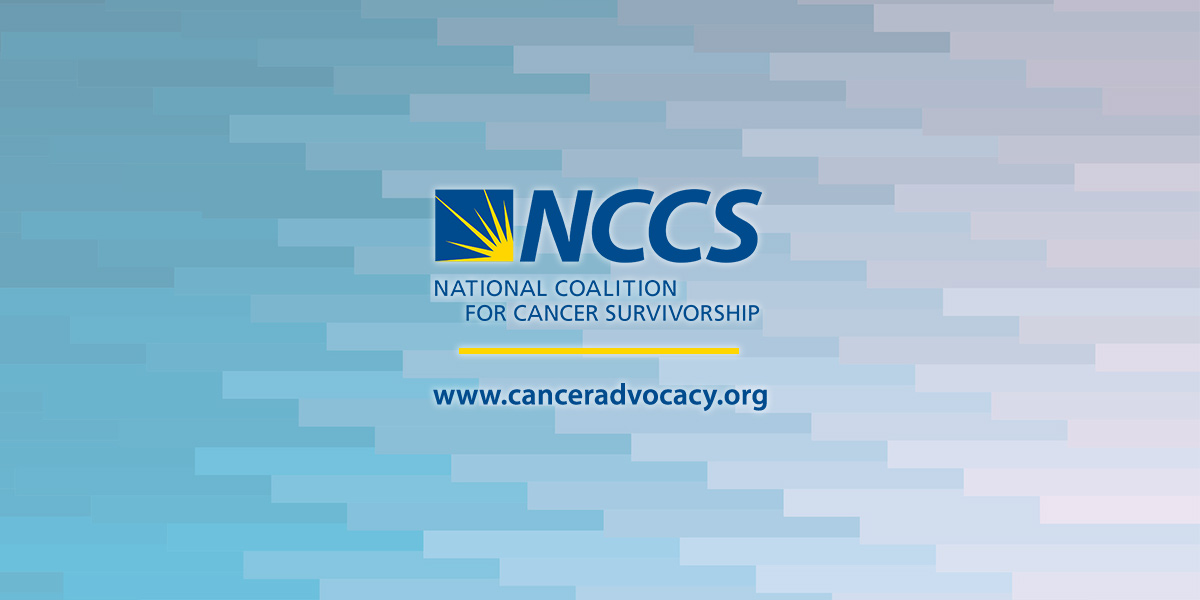NCCS Joins Statement of Support for COVID-19 Vaccination of All Health Care Workers
NCCS joined other patient, professional, and research organizations of the Cancer Leadership Council (CLC) in issuing a statement in support of COVID-19 vaccination of all health care workers.
The emergence of the highly contagious Delta variant, which is now sweeping through unvaccinated Americans across the country, creates serious problems for cancer patients.
“Cancer care professionals used aggressive and creative approaches to provide cancer care safely during the pandemic, significantly addressing the dislocations in care and permitting patients to continue or resume cancer treatment. Those cancer care institutions and professionals – cancer centers, academic health centers, hospitals, and community oncologists – must now demonstrate that same commitment to their patients by requiring vaccination.”
Read the full letter from CLC below or download here.
CANCER LEADERSHIP COUNCIL
A PATIENT-CENTERED FORUM OF NATIONAL ADVOCACY ORGANIZATIONS
ADDRESSING PUBLIC POLICY ISSUES IN CANCER
STATEMENT OF THE CANCER LEADERSHIP COUNCIL IN SUPPORT OF COVID-19 VACCINATION OF ALL HEALTH CARE WORKERS
August 17, 2021
The undersigned cancer patient, health care professional, and research organizations advocate that all health care employers require their workers to receive the COVID-19 vaccine and that all health care professionals accept vaccination without delay.
Cancer patients have faced the same challenges as all Americans in their efforts to remain safe during the height of the COVID-19 pandemic and to protect their families and friends from infection. However, cancer patients and cancer survivors faced additional pandemic challenges. Many cancer patients could not shelter in place or avoid health care institutions, as they urgently needed treatment. Some cancer patients and survivors are especially vulnerable to COVID-19, as they are immunocompromised because of their cancer diagnosis or the cancer treatment they have received or are still receiving.
The cancer community hailed the rapid development and emergency use authorization of COVID-19 vaccines, the results of a stellar research and development culture that has also provided cancer patients life-saving treatments. Many cancer patients chose to receive vaccines as soon as they were eligible to protect themselves, their families, fellow patients, and health care professionals from infection. Unfortunately, the immune response to COVID-19 vaccines may be reduced in some immunocompromised individuals, including people receiving chemotherapy and others with certain hematological malignancies. As a result, those cancer patients who are immunocompromised have been advised to continue to follow COVID-19 public health measures identified by the Centers for Disease Control and Prevention, including masking, distancing, and avoiding crowds and poorly ventilated spaces.1 The pandemic still posed challenges, even before the recent COVID-19 surge, for many cancer patients and survivors. The emergence of the highly contagious Delta variant, which is now sweeping through unvaccinated Americans across the country, creates even more serious problems for cancer patients.
Cancer care professionals used aggressive and creative approaches to provide cancer care safely during the pandemic, significantly addressing the dislocations in care and permitting patients to continue or resume cancer treatment. Those cancer care institutions and professionals – cancer centers, academic health centers, hospitals, and community oncologists – must now demonstrate that same commitment to their patients by requiring vaccination.
Cancer patients are doing everything that they can to remain safe and to protect their families and communities, by being vaccinated if they can and by following public health measures to minimize transmission. We ask health care institutions and providers to help protect us.
We commend the health care experts, health care institutions, and professional societies that support the requirement for universal vaccination of health workers.2 We understand that some health care workers may have underlying medical conditions that may result in exemption from a mandate. We also understand that a mandate must be accompanied by continued efforts to improve vaccine acceptance and outreach by peers to address mistrust of the vaccines and skepticism about their development.
In the midst of the pandemic, cancer patients’ lives depended on the commitment of cancer care professionals to care for them without unreasonable delay and safely. Now their lives and the health of the nation depend on health care workers being immunized.
CANCER LEADERSHIP COUNCIL
American Cancer Society Cancer Action Network
American Society for Radiation Oncology
Association for Clinical Oncology
Association for Molecular Pathology
Association of Oncology Social Work
Children’s Cancer Cause
College of American Pathologists
Hematology/Oncology Pharmacy Association
LUNGevity Foundation
National Coalition for Cancer Survivorship
Ovarian Cancer Research Alliance
Prevent Cancer Foundation
Susan G. Komen
References
- Centers for Disease Control and Prevention, Interim Public Health Recommendations for Fully Vaccinated People, Updated July 27, 2021. Accessed on August 1, 2021, at https://www.cdc.gov/coronavirus/2019-ncov/vaccines/fully-vaccinated-guidance.html.
- Joint Statement in Support of COVID-19 Vaccine Mandates for All Workers in Health and Long-Term Care, accessed on August 2, 2021, at https://www.acponline.org/acp_policy/statements/joint_statement_covid_vaccine_mandate_2021.pdf;
Statement on Mandatory COVID-19 Vaccination of Health Care Personnel, July 21, 2021, accessed on August 1, 2021, at https://www.aha.org/public-comments/2021-07-21-aha-policy-statement-mandatory-covid-19-vaccination-health-care.
Cancer Leadership Council
2446 39th Street NW
Washington, DC 20007
Phone: 202-333-4041
www.cancerleadership.org



